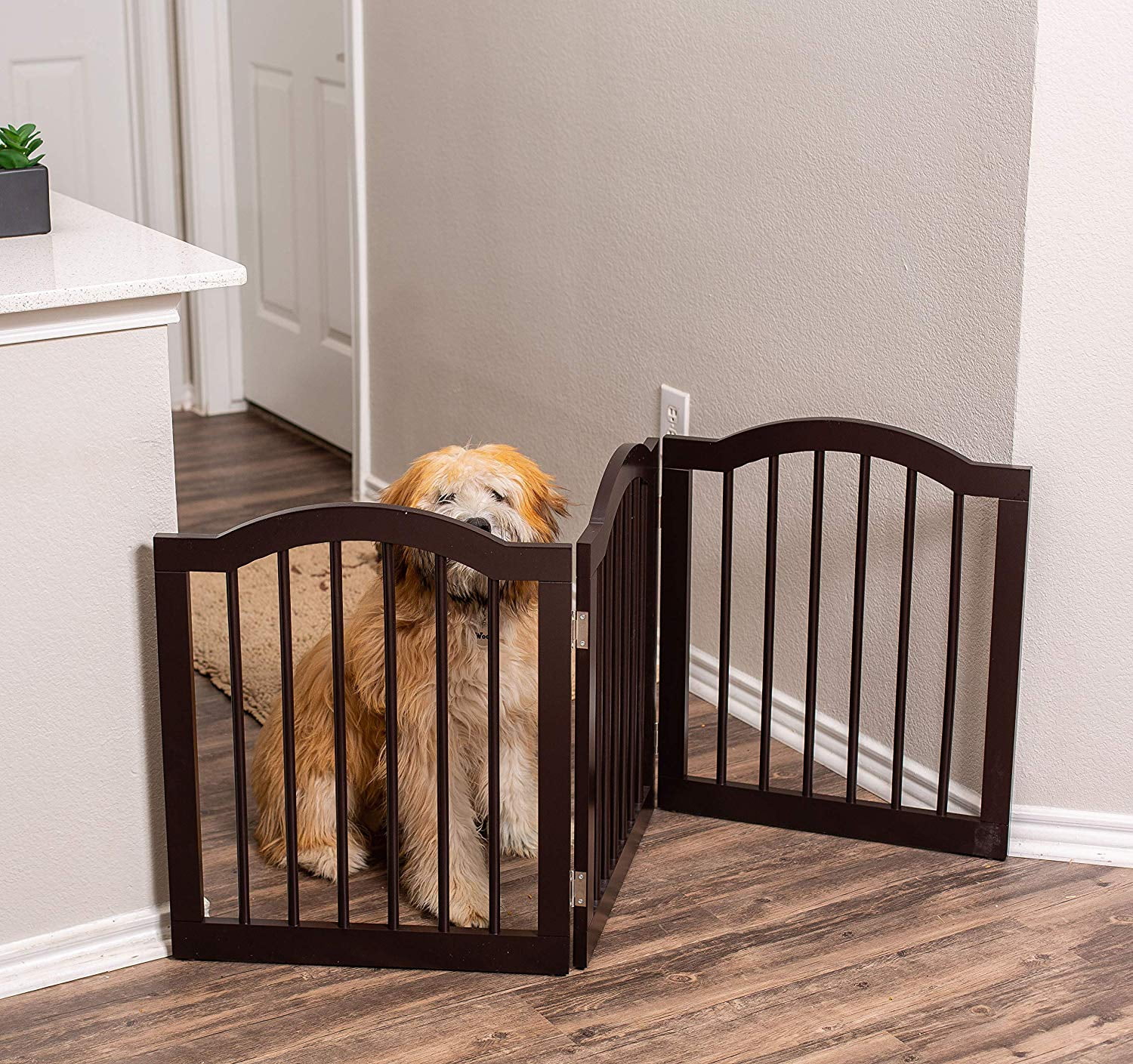
Why Do You Need Dog Gates Indoor?
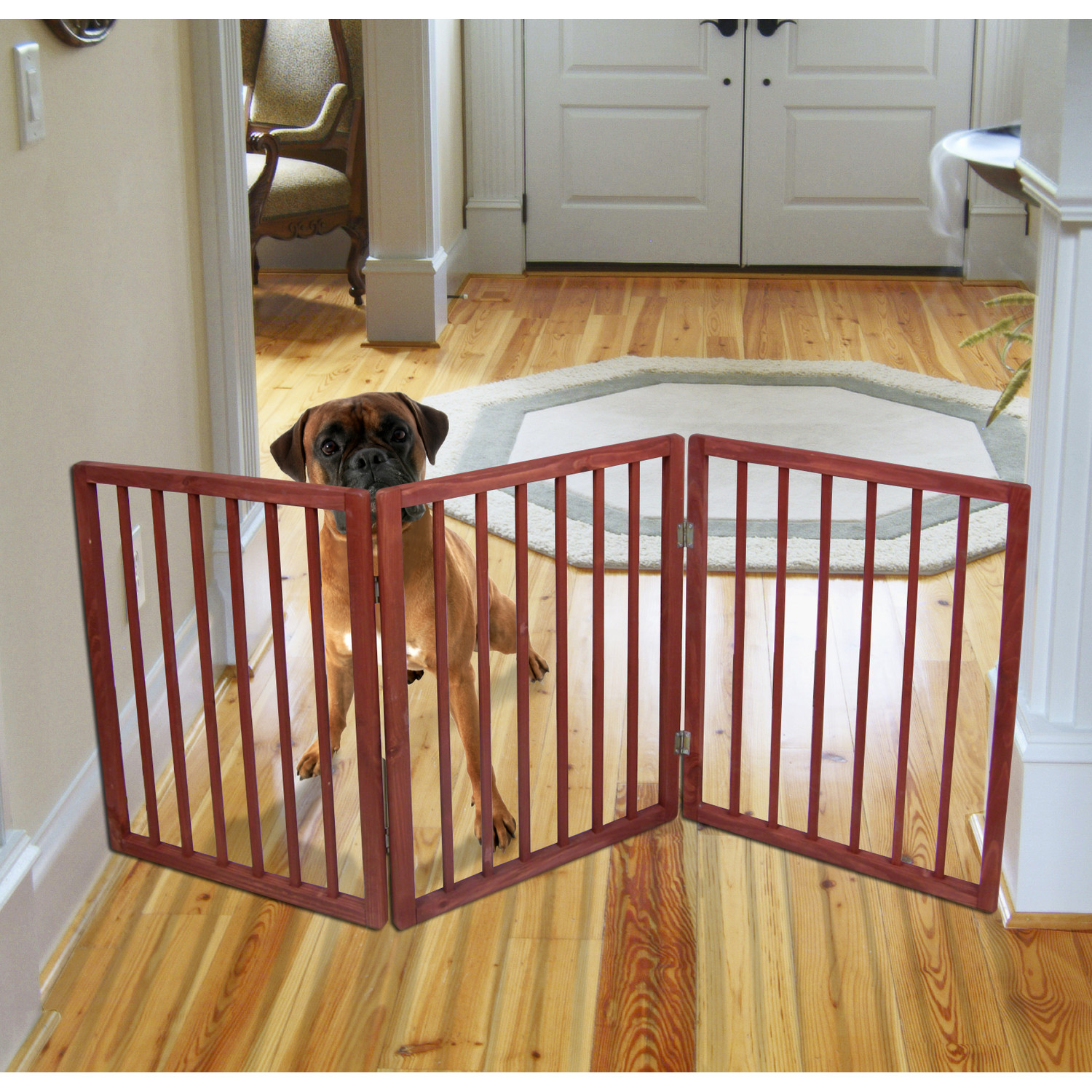
As a responsible pet owner, ensuring the safety and security of your furry friend is of paramount importance. One effective way to achieve this is by investing in dog gates for indoor use. These versatile barriers offer numerous benefits, including:
Preventing Accidents and Mishaps
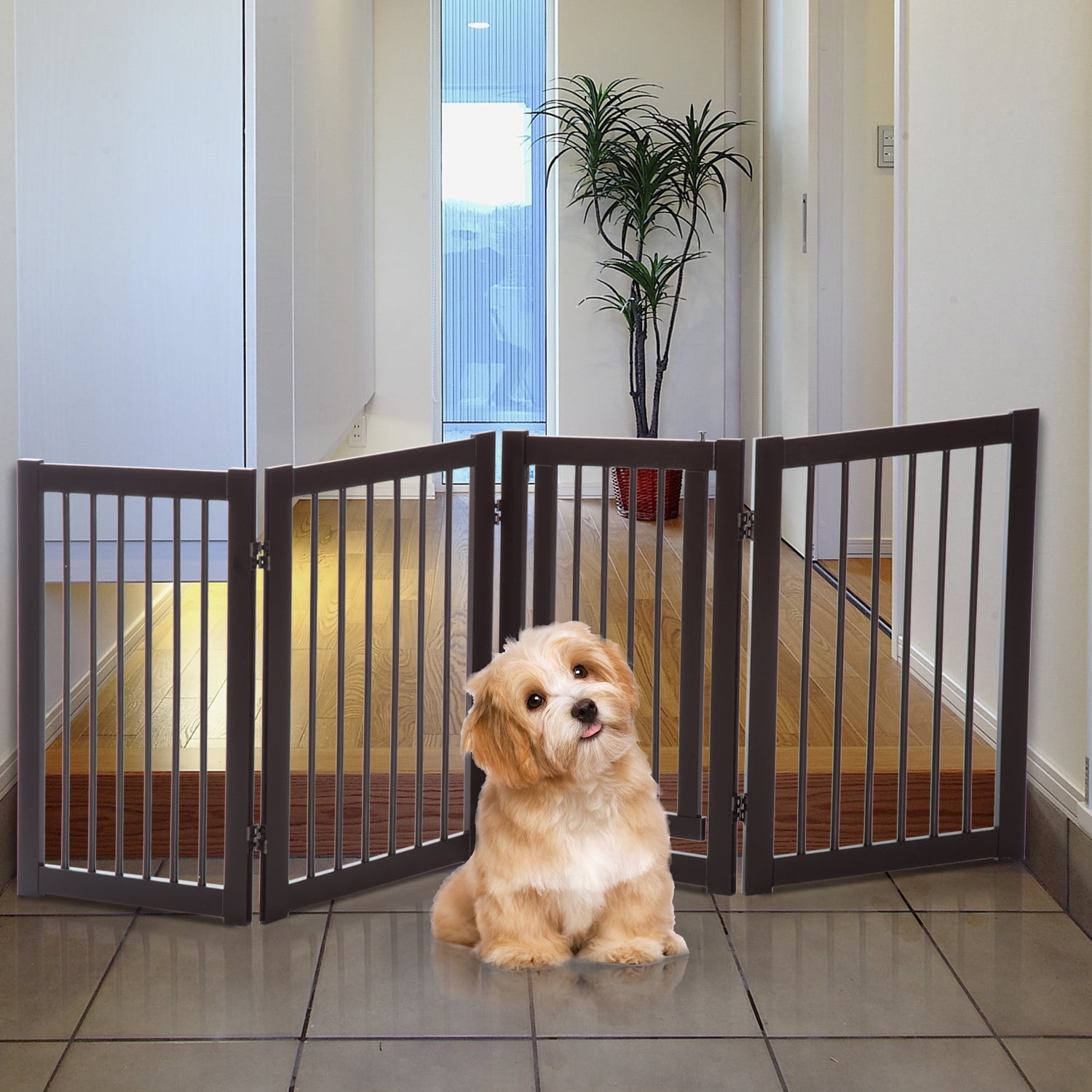
Indoor dog gates act as a physical barrier, preventing your dog from accessing certain areas in your home where potential hazards or fragile items might be present. By confining them to a safe space, you can reduce the risk of accidents, such as knocking over valuable objects or ingesting harmful substances.
Creating Boundaries and Managing Behavior

Introducing indoor dog gates enables you to establish clear boundaries within your home. This can be particularly beneficial when you have guests or young children who may not be comfortable or familiar with dogs. The gates also assist in managing your dog's behavior by limiting their access to certain areas, preventing them from engaging in potentially destructive behaviors or excessive barking.
Providing a Safe Space for Rest and Relaxation

Just like humans, dogs need their own private space for relaxation and rest. By setting up an enclosed area using indoor dog gates, you can create a safe and cozy spot where your furry friend can retreat to when they need some downtime or simply want to have a peaceful nap.
Assisting in Training and Housebreaking
Indoor dog gates can play a crucial role in the training and housebreaking process. By confining your dog to a specific area, you can effectively supervise and monitor their behavior, making it easier to establish a routine and reinforce positive habits. The gates also aid in preventing accidents and promoting successful housebreaking by limiting your dog's access to areas where they shouldn't eliminate.
Choosing the Right Dog Gate for Your Home
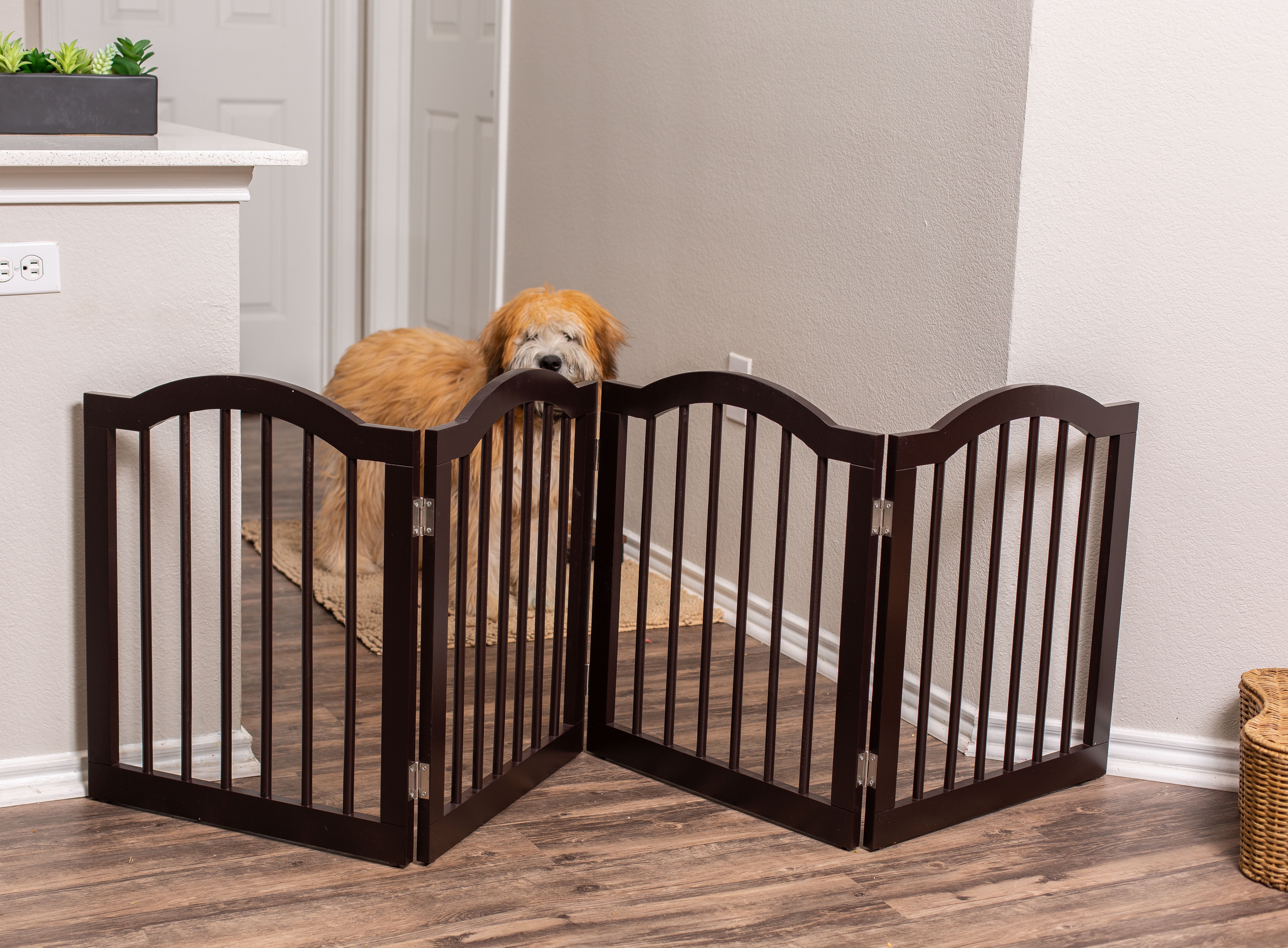
When selecting an indoor dog gate, there are a few factors to consider:
Size and Type:
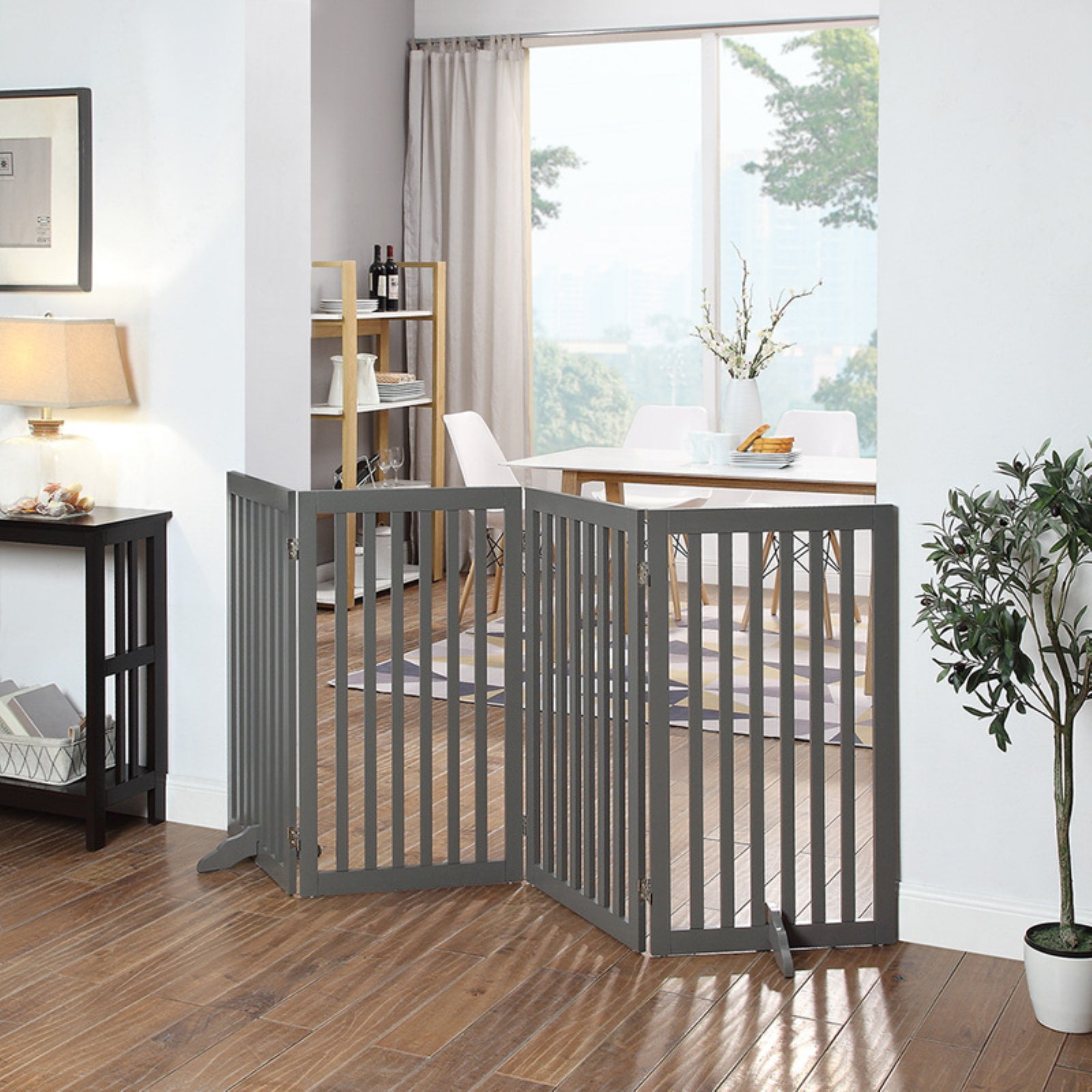
Measure the width of the area you want to block off to ensure you choose a gate that fits properly. Additionally, consider the type of gate that suits your needs. There are various options available, including pressure-mounted gates, hardware-mounted gates, and freestanding gates.
Materials and Durability:
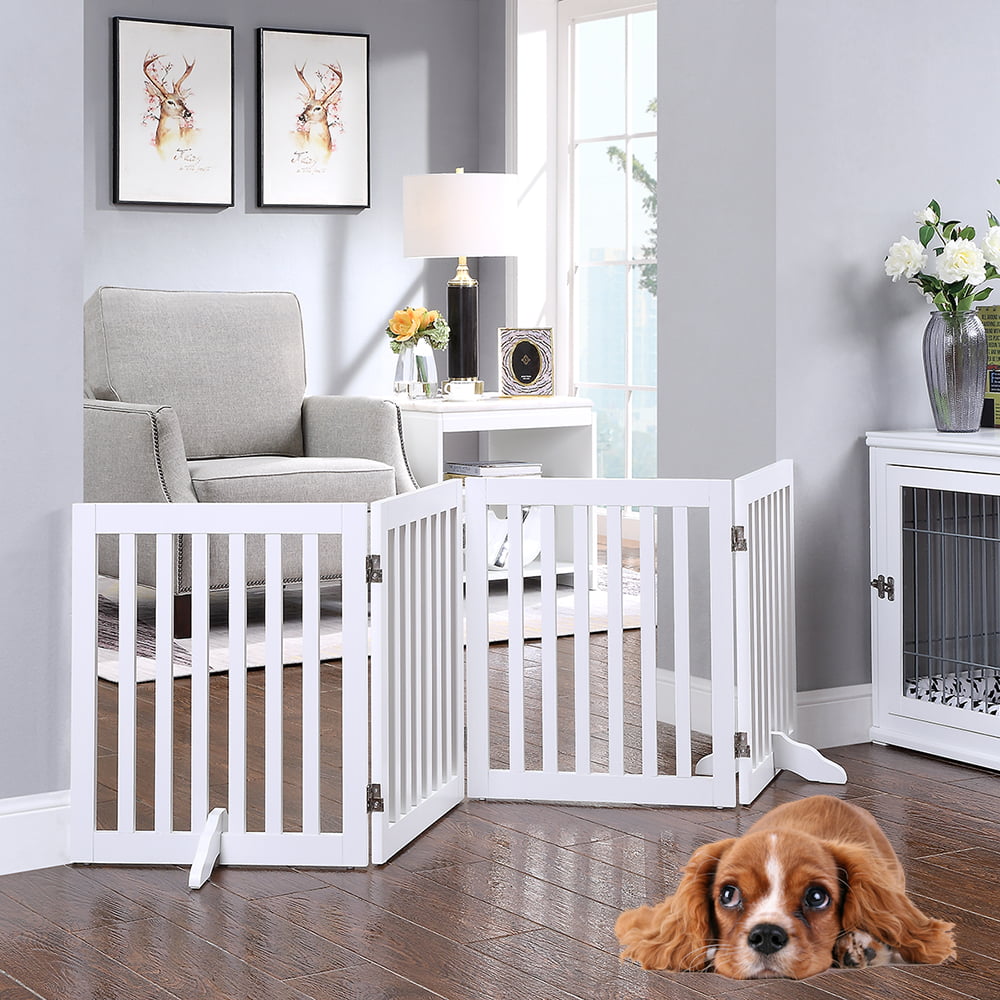
Look for dog gates made from sturdy and durable materials, such as metal or wood, to withstand your dog's enthusiasm and potential attempts to escape.
Height and Jumping Ability:
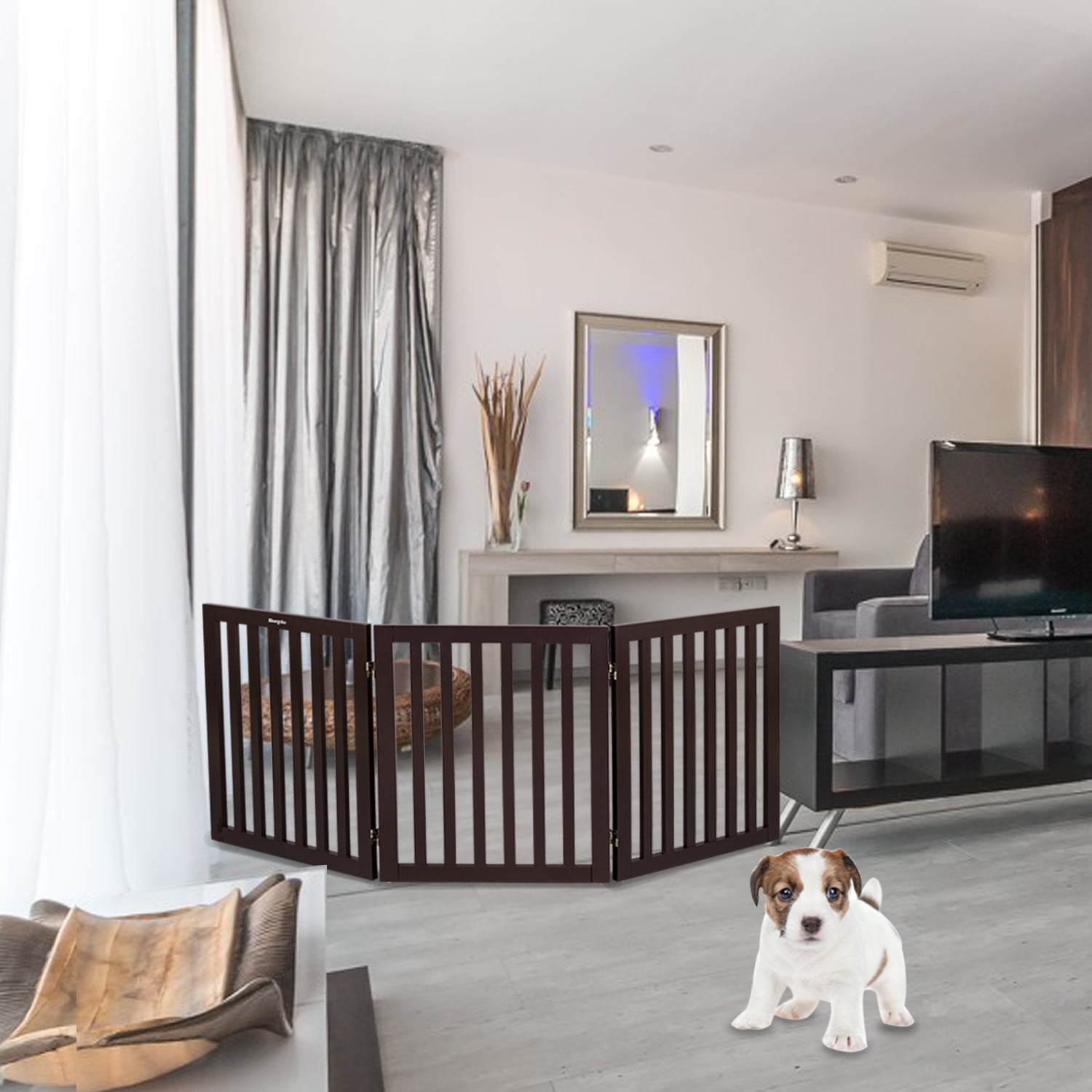
If your dog is an accomplished jumper, opt for a gate with a sufficient height to prevent them from leaping over it.
Introducing and Training Your Dog to Use the Gate
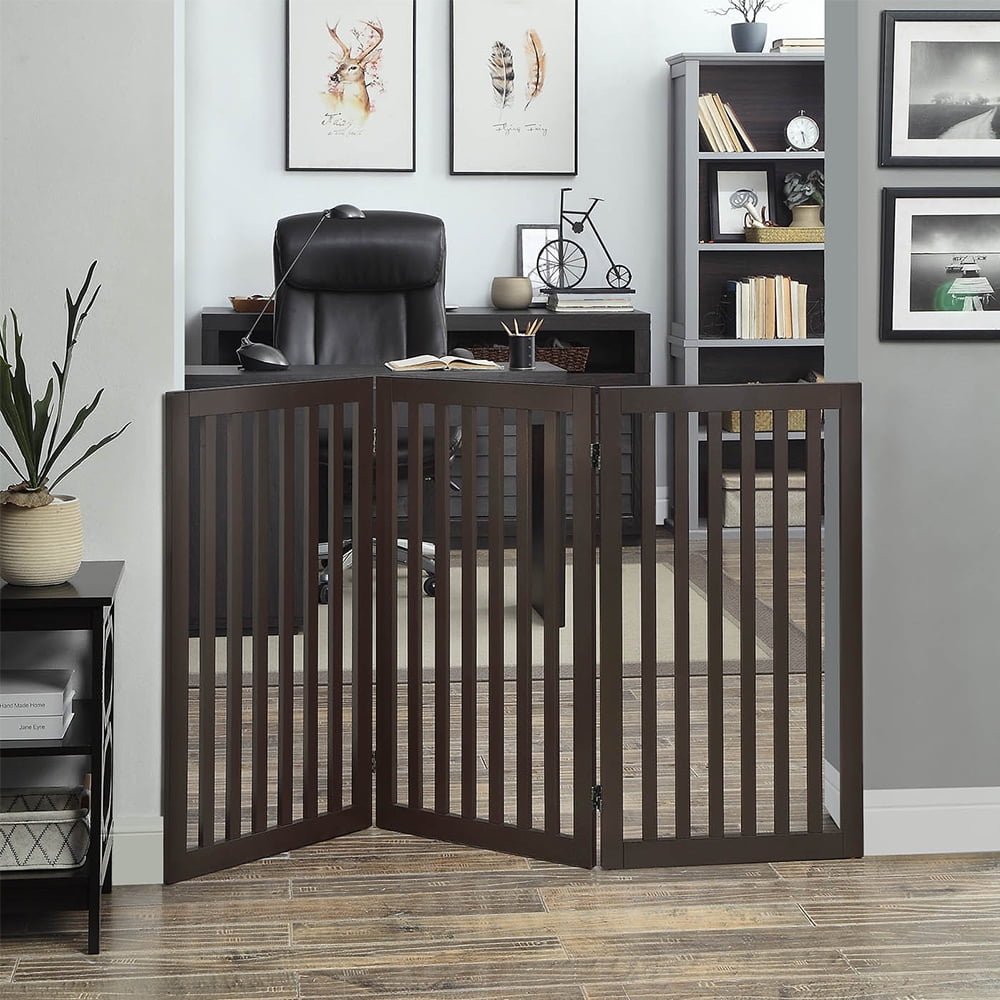
Once you have chosen the perfect dog gate, it's important to introduce it to your furry friend gradually:
Step 1: Familiarization:
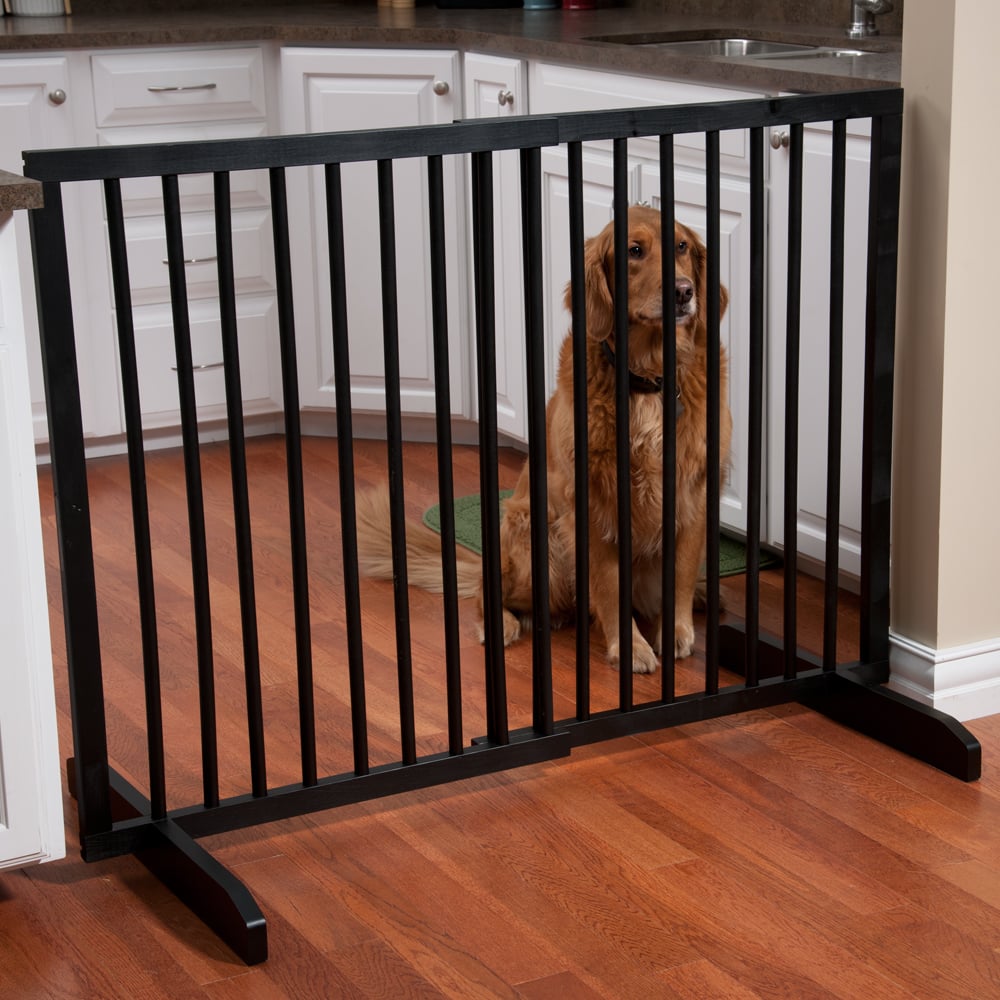
Allow your dog to explore and sniff the gate while it is open. Encourage positive associations by providing treats and praise.
Step 2: Controlled Access:
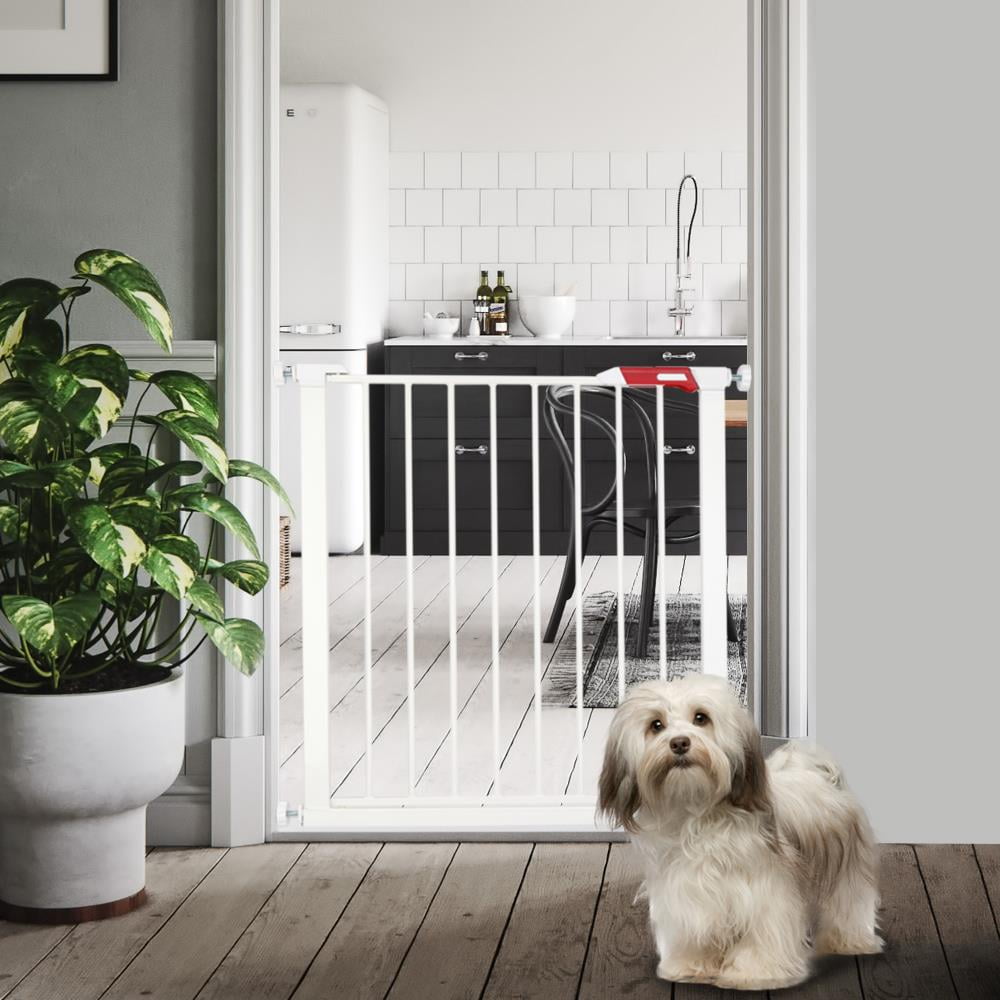
Gradually restrict access to the gated area by closing the gate for short periods while your dog is supervised. Reward them for staying calm and not attempting to escape.
Step 3: Reinforcement and Freedom:
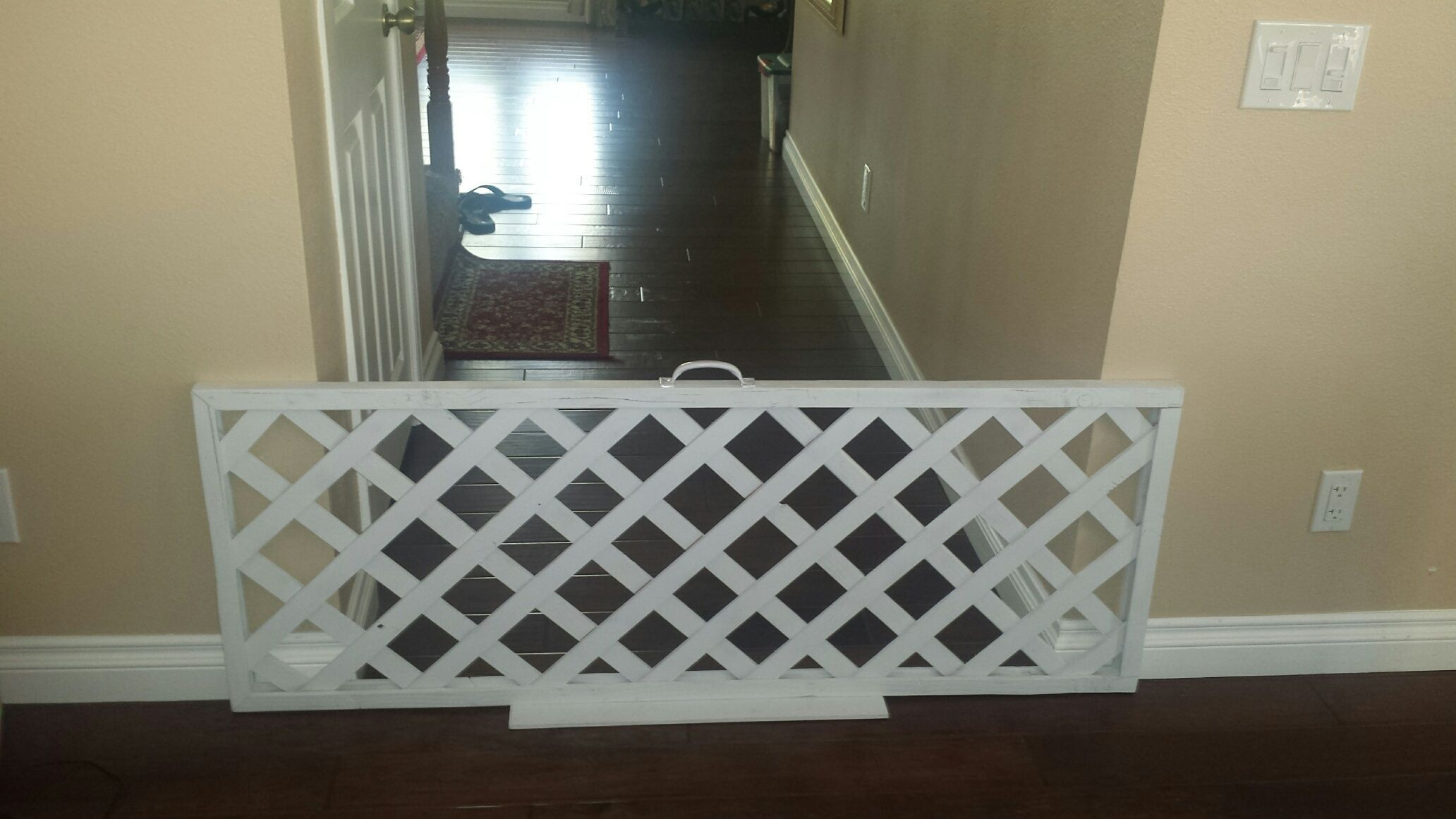
Continue reinforcing positive behavior by rewarding your dog whenever they willingly stay behind the gate. Over time, increase their freedom within the gated area.
Conclusion
Investing in dog gates for indoor use is a wise decision for any pet owner concerned about their dog's safety, behavior management, and training. By providing a secure space, you can prevent accidents, establish boundaries, and ensure a peaceful coexistence between your furry friend and the rest of your household. Choose the right gate based on size, materials, and your dog's specific needs. Introduce the gate gradually and use positive reinforcement techniques to help your dog adapt. With the right dog gate, you can have peace of mind knowing your four-legged companion is safe and secure.